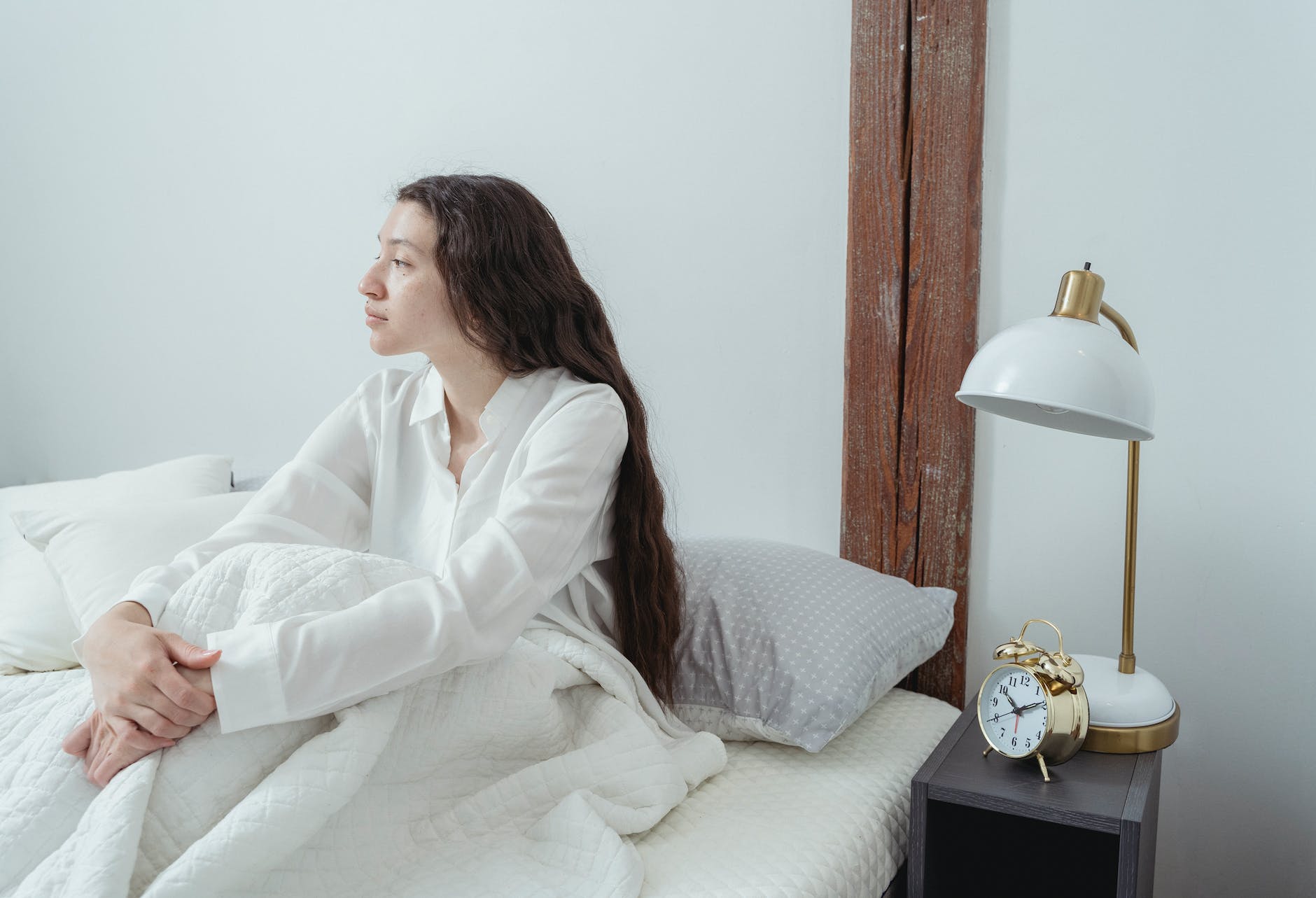Do you feel like you’re running on fumes as soon as your head hits the pillow every night? Do you find yourself in bed after a hard day feeling as if you have run out of energy? The signs that you may be suffering from chronic fatigue include “tiredness” and are genuine. Most people experience periods of exhaustion from time to time, but those who struggle with chronic fatigue frequently feel exhausted much more often and for extended periods. If you’re reading this, it’s probably because you too are someone who wakes up with a sense of dread. You ask, Why do I wake up tired? You feel like staying in bed all day or find yourself nodding off at your desk or in meetings. But the weirdest thing about fatigue is how it affects us.
Most people will say that they “just don’t have the energy to do anything today”. It leaves us feeling like there are entire days we miss out on because of being exhausted. Having excess fatigue doesn’t just affect our waking hours, but also our ability to concentrate on simple tasks and even our dreams at night! Fortunately, several strategies can help combat chronic fatigue and help you feel energized throughout the day. This blog post will introduce you to different causes of chronic fatigue, reveal some tips on how to deal with it, and provide some helpful strategies that may improve your energy levels.
What Causes Chronic Fatigue?
Before we start finding ways to deal with chronic fatigue, we need to discover what causes it in the first place. If you’re struggling with fatigue, there are a number of reasons why this might be the case. For example, you may be dealing with a medical condition, such as Anemia or iron deficiency which can lead to reduced iron levels in the blood. Anemia is caused is caused by a lack of iron. Due to this you do not have enough red blood cells in your body to carry oxygen to your tissues, leaving you feeling exhausted. Another common cause of chronic fatigue is stress. Stress takes a toll on many areas of the body, including your immune system and your ability to think clearly. When we experience high levels of stress, our bodies produce additional chemicals called cortisol and adrenaline, which can lead to feeling exhausted and lethargic.
Tiredness as a Symptom of Other Conditions
If you are experiencing a great deal of fatigue and are waking up tired or worried that it may be a symptom of a serious medical condition, it’s important to see your doctor. If you’re experiencing chronic fatigue and other symptoms, such as joint pain, headaches, and weight loss, it could be a sign of an autoimmune disease such as lupus or rheumatoid arthritis. Chronic fatigue may also be a symptom of a thyroid disorder or adrenal gland issues. If you find that you are exhausted all the time, you should talk to your doctor about getting tested for these conditions. They may be able to offer treatment options.
Chronic Fatigue and Depression: Know the Signs
Another thing that you should watch out for is if your chronic fatigue is a sign of depression. These two conditions can co-exist, and the more you ignore the signs of one condition, the more it will be likely to lead to the other. If you find that you’re often fatigued, it’s important to seek help. If your fatigue is accompanied by changes in your sleeping patterns, difficulty concentrating, feelings of hopelessness, or thoughts of suicide, it’s possible that you suffer from chronic fatigue or depression. You should talk to your doctor or visit a counsellor if you’re experiencing these symptoms, . While fatigue often comes and goes, if your symptoms persist for two months or more, it’s a sign of something more serious.

Why am I still tired after 8 hours of sleep?
After 8 hours of sleep, if you still end up asking “why do I wake up tired?”, you’re not alone. Like many others, you might have a problem. That’s because 7-8 hours of sleep is the minimum amount of sleep that’s recommended for adults. And if you’re not getting enough sleep, you’re likely experiencing a number of negative consequences, including fatigue, mood swings, and poor concentration. In fact, chronic sleep deprivation has even been linked to a number of serious health problems, like heart disease and obesity.
If you’re finding it hard to get enough sleep, there are a few things you can do to improve your situation. First, make sure to schedule regular bedtime rituals. These will help to establish a routine and help you get ready for bed. Second, try to get up at the same time every day. This will help to regulate your body’s natural sleep rhythm. And last but not least, avoid caffeine and alcohol before bed. They can disrupt your sleep cycle and make it harder to fall asleep. If you’re still finding it hard to get enough sleep, it might be time to seek out professional help. There are a number of sleep specialists who can help you get the rest you need.
Read on for more tips to get a better rest.
Chronic fatigue or just too much sleep?
You may find it surprising to learn that you might feel less energized and less rested if you get more sleep than you need. It’s common to feel sluggish and unmotivated on days when you hit the snooze button more times than usual. Oversleeping can upset your body’s biological clock: the circadian rhythm. Maintaining good sleep hygiene and habits are important to regulate your biological clock and avoid health issues.
It appears that any significant deviation from normal sleep patterns can upset the body’s rhythms and increase daytime fatigue. You should figure out how many hours of sleep are right for you and then stick with it – even on weekends, vacations, and holidays.
Oversleeping can result in other medical issues like Obesity, diabetes, Back Pain, Headache, Heart Problems amongst others. People that suffer from hypersomnia suffer from oversleeping, a medical condition in which they oversleep. While napping does not usually relieve their extreme sleepiness throughout the day, they also sleep for unnaturally lengthy periods of time at night. Oversleeping may also be due underlying medical conditions. Make sure to speak with your doctor so they can rule out any health issues and help you manage your symptoms.
Your body’s biological clock: the circadian rhythms
Your body clock is an internal biological clock that regulates your various biological processes based on an internal 24-hour cycle. It’s what helps set your body’s sleep-wake rhythm, and it’s crucial for your health. It’s why it’s important to make sure you’re following a routine that lets your body know it’s time to sleep. The best way to do this is to make sure you’re following a consistent sleep schedule. This includes getting enough sleep, keeping a regular bedtime, and making sure you’re sleeping in a dark, quiet room.
Dealing with chronic fatigue: Start small
One of the most important things to remember when dealing with chronic fatigue is to start small. You probably have a million things on your to-do list that you want to get done. But, if you’re experiencing fatigue, you probably don’t have the energy to get that list done. It’s important to set realistic goals for yourself when you’re dealing with chronic fatigue. Don’t be afraid to ask for help from your friends and family members; they may be more than willing to lend a hand. Another thing to keep in mind is that your sleep schedule may need to be adjusted. If you’re chronically fatigued, try sleeping later in the day and waking up later in the morning.

Tips & Strategies to Help You Wake Up Feeling Refreshed
- Practice good sleep hygiene: Create a bedtime and morning ritual. Following good bedtime & morning rituals will set the routine for your body and get you ready to sleep as well as get you charged up when you wake up.
- Try to get to bed by 10 pm at the latest- If you find that you’re not able to fall asleep by this time, you may want to try some relaxation techniques such as meditation, yoga, or reading.
- Stay hydrated: Dehydration can cause fatigue, so make sure that you’re drinking enough water throughout the day.
- Exercise regularly: It’s been proven that exercise can help ease feelings of tiredness, so try to make working out a part of your daily routine.
- Eat a healthy diet: A poor diet can lead to an unhealthy immune system, which can cause fatigue.
- Try not to consume too much caffeine: Although caffeine can give you an energy boost, it can also crash your system, so it’s important to stay hydrated and drink plenty of water.
- Take vitamin supplements: There is a wide range of vitamins that may help ease feelings of tiredness.
- Practice meditation: Not only can meditation help you fall asleep, but it can also be a way to clear your mind and relax your muscles.
- Try acupuncture: This ancient Chinese therapy has been proven to help with feelings of tiredness, so it may be worth it to give it a try.
- Choose uplifting music: Music can help you to relax at night, so try to listen to soothing music that will help you to unwind.
- Power nap: Take small power naps where needed to recharge yourself
- Avoid electronic gadgets and screens often emit blue light that can disturb your sleep.
Night Rituals to help you sleep better
There are all sorts of things you can do to help you fall asleep faster and stay asleep longer. Here is a really simple sleep ritual that can help you fall asleep faster and sleep better throughout the night. The sooner you can fall asleep, the better your sleep will be. This ritual will help you unwind and relax your mind, which is a big part of falling asleep.
- Keep a good gap between the time you have dinner or a snack and the time you sleep of 2-4 hours
- Avoid caffeinated drinks & alcohol before bedtime. Alcohol can negatively affect your sleep, so it’s best to avoid drinking it before bed.
- Do some light to moderate exercise before sleep like yoga, walking or biking leisurely 1 hour or more before bedtime
- Put away your electronic gadgets away 30 mins to 1 hour before bedtime
- Meditate to calm music for a bit before sleeping
- Reading is a great way to help you relax and let go of any stress that might be keeping you up
- Drink chamomile tea. This herbal tea is a natural sleep aid, so it’s a good idea to drink it just before bed.

Morning Rituals to get you started. Fight that wooziness!
If you’re waking up feeling groggy, and feeling tired, the first step to combatting this is to track how much sleep you’re getting. Make a note of when you’re waking up and for how long you’re sleeping for. This will help you identify whether you’re getting enough sleep. Most people need around 7-8 hours of sleep a night to feel well-rested, but this can vary from person to person. If tracking your sleep isn’t helping you improve, try implementing some of these energizing morning rituals. A morning ritual is a positive action that you perform daily that helps to set the tone for your day. You can use it as a way to combat chronic fatigue if you are consistent with it and make it a habit. Some ideas for a morning ritual to combat chronic fatigue include:
- Journaling: Journaling is a great way to clear your mind and can help to reduce stress.
- Meditation: As mentioned above, meditation is a great way to reduce stress and help you to calm your mind.
- Exercise: Exercise is a great way to boost your metabolism and get your blood flowing. Research shows that getting some fresh air first thing in the morning can help improve alertness, so you’re less likely to feel tired
- Eating a healthy breakfast: Eating a nutritious breakfast can help to boost your metabolism and keep you full throughout the day. Eat more protein at breakfast. Protein takes longer to digest than carbs, so it will help keep you full for longer. This is especially important if you’re feeling lethargic in the morning, as eating can help provide an extra energy boost to start your day feeling fresh.
- Hydrate: Dehydration will make you feel tired, so make sure you’re drinking enough water.
- Spending time with loved ones: Spending time with your friends and family members is a great way to start your day.
Foods that can help your sleep
Certain foods can help improve sleep, so it’s worth experimenting to see what works best for you. These include:
- Bananas: This sweet, savory fruit is rich in tryptophan, which is used to produce serotonin, a hormone that helps regulate sleep-wake cycles
- Cherries: Rich in melatonin, cherries can help regulate your circadian rhythm. Tart cherries are known for their sleep-promoting effects.
- Herbal teas: Chamomile, lavender, and valerian are all well known for their sleep-promoting effects
- Almonds: Almonds are rich in magnesium, which can help regulate your circadian rhythm
- Oats: Oats are a good source of tryptophan, so they can help improve sleep. The best way to use oats to improve your sleep is by opting for a slow-release oat
- Chicken: A chicken and avocado sandwich can be a good way to help improve your sleep

Foods that can disrupt your sleep. Avoid these!
Some of the foods listed here can disrupt your sleep. Try to avoid these.
- Coffee and caffeine can disrupt your circadian rhythm, so it’s best to avoid them a few hours before bed.
- Alcohol can also disrupt your sleep. It’s best to avoid drinking alcohol for a few hours before bed, as it can disrupt your sleep, meaning you’ll wake up feeling less refreshed.
- Spicy & Fatty foods: Some foods can cause indigestion, which can lead to poor sleep. These include spicy foods, dairy products, and fatty foods (like chips and crisps). Certain foods can cause heartburn and other digestive problems, which can also lead to poor sleep.
What next?
You should now be able to identify what’s causing your lack of energy and take steps to correct it. Most of the time, waking up groggy is just part of the natural process of transitioning out of sleep. Asking yourself “Why do I wake up tired?” is the first step of the process. If you’re feeling tired during the day, consider how much sleep you are getting and what you’re eating before bed. With a few adjustments, you can help improve your energy levels so you can enjoy life to the fullest.
If you have trouble waking up, try setting an alarm that wakes you with light rather than sound. This can help you wake up more naturally, as opposed to being jolted awake by a loud noise. Consider wearing a sleep mask to make sure that any light that comes through your eyelids doesn’t prevent you from falling asleep.
However, if your tiredness is interfering with your daily life, it’s important to take action. Are you experiencing excessive fatigue? It’s best to visit your doctor and discuss your symptoms, as this may be a sign of a more serious condition.
I hope we were able to help you learn how to wake up feeling fully charged. Are you ready to tackle the day ahead with energy and enthusiasm!
More interesting articles to read:
Why is Sleep Important for your health & wellbeing?: All about what is sleep, the stages, issues and more



